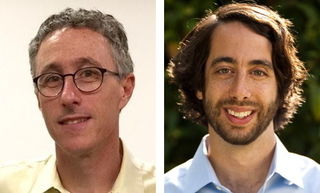Bias
Anti-Racist Action and Becoming Part of the Solution
Learn about small and large steps you can take today to reduce racism.
Posted August 18, 2016
by Jonathan W. Kanter, Ph.D. and Daniel C. Rosen Ph.D., guest contributors

We recently published a blog post titled, What Well-Intentioned White People Can Do About Racism, and proposed five scientifically informed suggestions to empower well-meaning white people to overcome confusion, defensiveness and despair around what to do about racism today in our society and begin a journey of learning (the new language of racism), acceptance (of difficult feelings around race and racism), exploration (of your own biases), commitment (to actively be a part of the solution) and connection (to form real relationships with others who are different from you).
This post is the fourth of five posts that briefly unpack each of those five suggestions. With increased knowledge of the new language of racism, acceptance of the discomfort that recognizing your own implicit bias generates, and non-judgmental awareness of those negative stereotypes, it is time to take meaningful action.
Don’t Slip Into Passivity

For many well-intentioned white people, it is easy to slip into despair and passivity when it comes to taking action on social issues related to racism. One source of despair is that the problems are structural – deeply embedded in the fabric of our society. Too hard to change.
In many ways it is true that some fundamental aspects of racism are deeply entrenched and will not change overnight. But some things are changeable, if you have the right courageous, persistent, and compassionate people involved. For example, it is possible now for college administrators and corporate executives to commit to addressing the obstacles to hiring more people of color in predominantly white institutions, as part of a larger plan to address more difficult structural issues. Also, you may be interested to learn how Yale University has responded to Corey Menafee, a black worker who took it upon himself to remove a highly offensive stained glass window from the eating hall of Calhoun College of Yale University.
Also keep in mind — because most of us are not corporate executives or college administrators — that change happens at all levels. In addition to pressuring those in power to create systemic and structural changes, we can take responsibility for the change that is possible in our day to day lives. While we think globally about these problems, we can act locally, within our personal spheres of influence.
What Should I Do?
You get to choose your path forward. We are all figuring this out the best we can. As you choose, it may be useful to keep in mind that your choices should honor the self-determination of people of color, that people of color are not looking to be rescued, and that it may be a good thing to seek feedback from people of color about your choices. You may be interested in how a Seattle organization, the Coalition of Anti-Racist Whites has organized its mission and activities in line with this. Also, you should know about and consider getting involved with the national organization, Showing Up For Racial Justice.
Engaging with these organizations can be productive, but also consider the possibility that there are opportunities to confront racism in your local world. You can consciously choose to pay more attention to racial dynamics in your day-to-day life. Maybe you can keep a log of what you notice and what you do about it, to keep yourself honest. Work with a friend and do this together. If you start to look, you will see subtle and small acts of racism everywhere. Did your father just say “gracias” instead of thank you to the wait-staff at the Mexican restaurant, even though she was speaking English? Did the cashier serve the white woman standing next to the Asian woman, even though the Asian woman was next in line? (Yes, this does happen all the time.) For a powerful example of how you can exercise your privilege in an everyday grocery store encounter, check out this video featuring Dr. Joy DeGruy.
Sometimes, the acts you witness are neither small nor subtle. Did your neighbor just use the N word? Did a friend just tell a racist joke? What do you usually do in these situations? How would it feel to do something different? Scary? Can you lean into that feeling and do something anyway? Are you not sure what to say? Here is an amazing resource published by the Southern Poverty Law Center: https://www.splcenter.org/20150126/speak-responding-everyday-bigotry
Read the whole thing, from the first page to the last. It is awesome.
Weed Your Own Backyard
Perhaps you choose to explore existing opportunities to work for racial equity in your own backyard. For example, do you know the diversity goals and vision of your workplace? Find out. How are they doing with respect to those goals? Are there problems with equity in hiring, promotion, or pay? There probably are, unless you are in a very unusual workplace. Who can you talk to about these problems? Start with colleagues and work your way up. Be strategic and work with others. Just don’t stay silent.
What about racial equity in your local schools? There are proven interventions for reducing racial achievement gaps and clear guidelines for implementing them. (See http://www.nea.org/home/20609.htm.)
Work with your local school board or PTA on these issues. If you start talking, you will almost assuredly find like-minded people who also want to do something but similarly haven’t known what to do or how to start.
Support Activists and Non-Profits
Still feeling hopeless about the larger structural issues? Remember this: Although you feel hopeless, there are scores of smart, committed people who are taking action. They have dedicated their careers and lives to fighting for social justice at the systemic level.
You may choose to support them by supporting non-profit social justice organizations.
In addition to the organizations mentioned above, there are hundreds of amazing non-profit social justice organizations doing this work that need your help. If you are lucky enough to have time, energy, or money to contribute, do so. We don’t want to tell you which organizations to connect with, but if you need a place to start, consider the following (we have no roles in any of them; they are just organizations we respect):
- The Equal Justice Initiative: http://www.eji.org/
- The National Association for the Advancement of Colored People: http://www.naacp.org/
- Black Lives Matter: http://blacklivesmatter.com/
- The Social Justice Fund: http://www.socialjusticefund.org/
- AVAAZ: https://secure.avaaz.org/en/
If you are able to donate money, these and many other organizations make it very easy to do so, are very transparent about where your donation is going, and have membership and email lists that allow you to get regular updates and stay connected. Sign up and let these organizations be a source of your day-to-day information and learning. Many organizations will also inform you about opportunities to influence your local politicians and policy-makers on issues that matter to you.
Finally, many individuals choose to donate directly to and support the campaigns of politicians who challenge the status-quo and advance the movement at the level of politics and policy. If you do this, great, but remember that racism exists all year long, not just at election time.
What’s Next?
The activities suggested in this post are opportunities for you to break your silence, to get active and engaged, and to become part of the solution of dismantling racism. This engagement opens the possibility for you to do the very personal work of aligning your day-to-day actions with what you care about. It will likely challenge you and move you out of your comfort zone. You may also notice that, as you get engaged, you will meet new people and have the chance to form real, genuine, caring relationships with people who are different from you. Relationships are at the heart of this work. Our next and final post discusses this issue.
Jonathan W. Kanter, Ph.D., is a Research Associate Professor and Director of the Center for the Science of Social Connection at the University of Washington. Daniel C. Rosen, Ph.D., is Associate Professor and Co-Director of the Center for Social Justice and Diversity at Bastyr University. The ideas expressed in this blog have been influenced by many sources, prominently two psychological treatments called Acceptance and Commitment Therapy and Functional Analytic Psychotherapy.
NEXT: Connection to form real relationships with others who are different from you.




